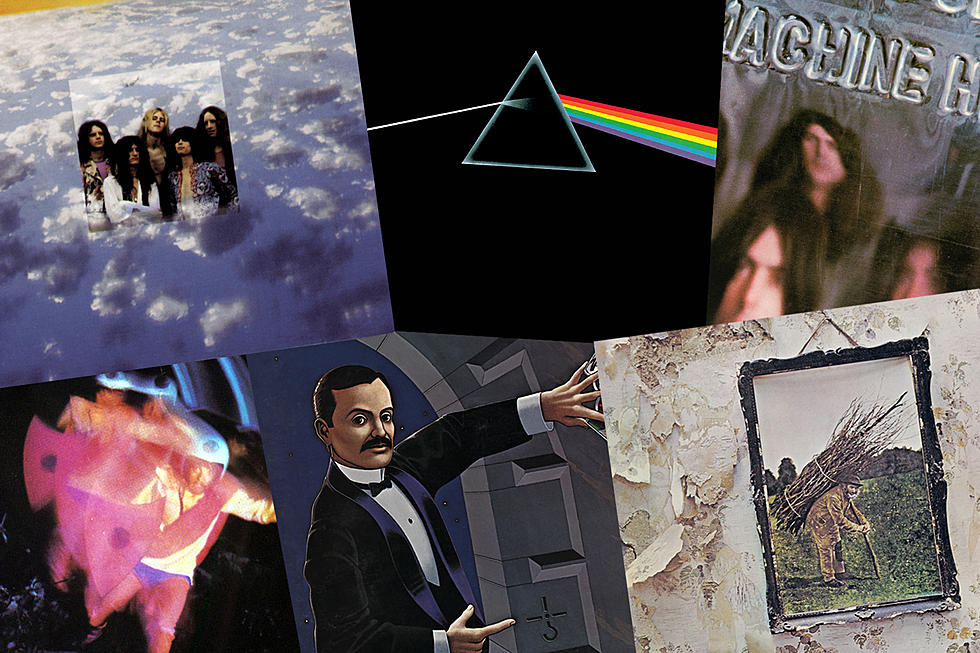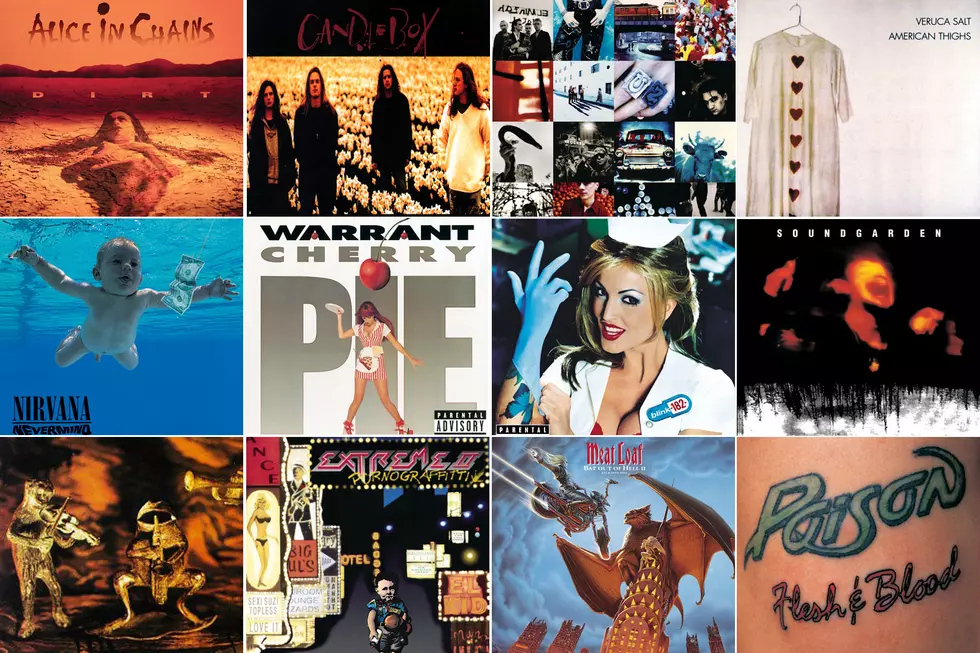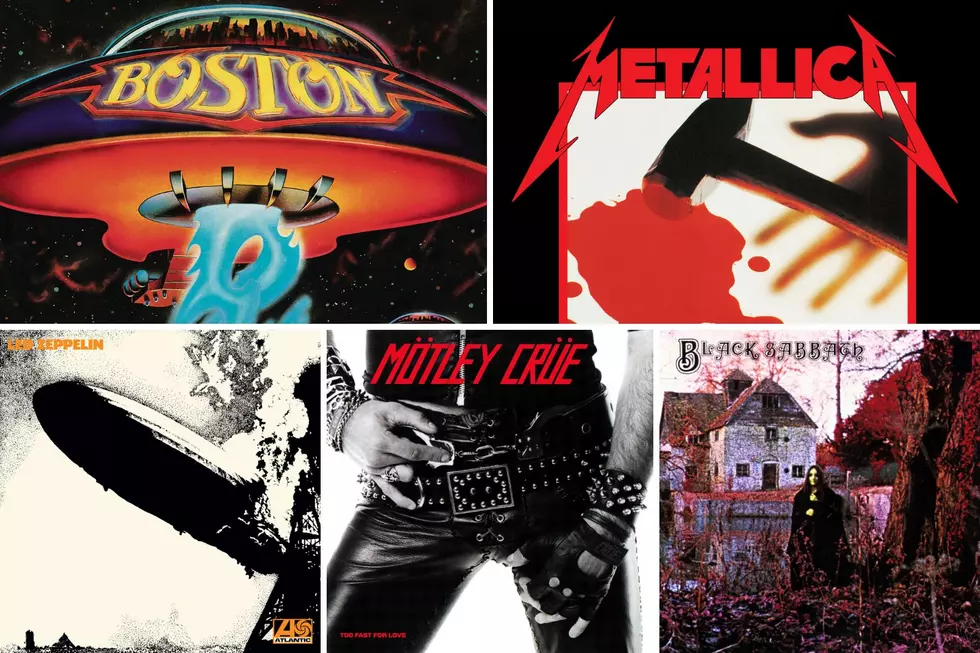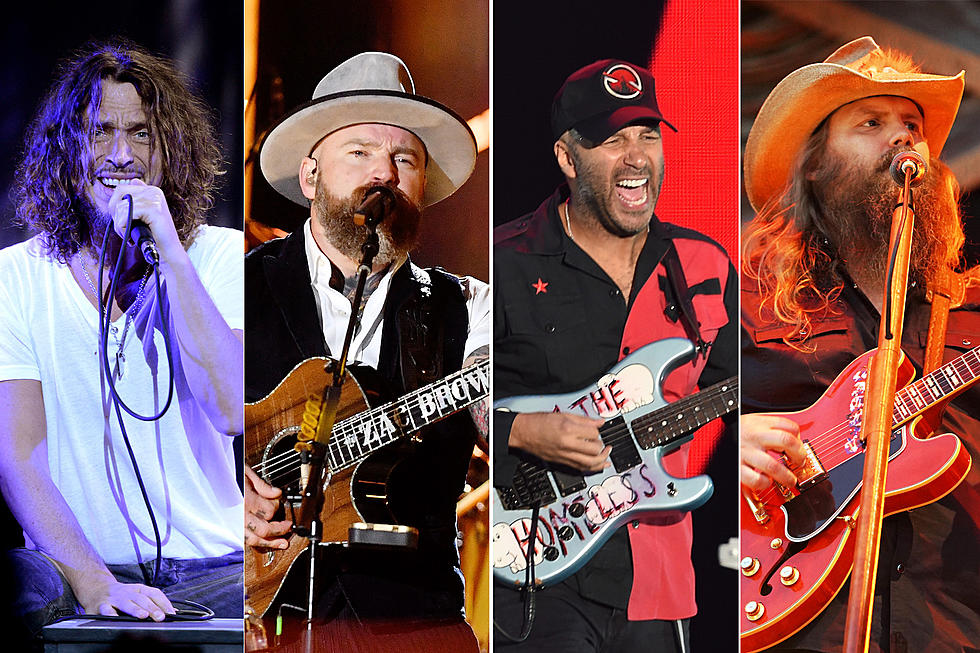
15 Songs From the 1970s You’ll Recognize From the First Few Notes
Although the roots of rock and metal go back further, the 1970s is when the genres truly rose to prominence, with many of their most enjoyable and influential tunes arriving within the decade.
While there are several reasons for why those classic tunes endure — memorable lyrics, captivating melodies, iconic vocals, groundbreaking instrumentation — their openings are almost always the main factor.
After all, there are countless examples of songs whose first few measures are so essential that even the most casual listeners will recognize them (even if they don’t know where the tracks go afterward).
Whether it’s the simplicity of a killer guitar riff, the emotional eloquence of an acoustic arpeggio, or something equally appealing, the following fifteen picks — most of which are stylistic standards by now — will definitely grab you from the start.
Black Sabbath, "Paranoid" (1970)
The first single from the heavy metal pioneers’ second album, “Paranoid” kicks off with one of the most basic yet emblematic six-string patterns of the era. Backed by Osbourne’s panicked vocals and a bustling rhythm section, Tony Iommi’s riff quickly became a crucial pick-up for any beginning guitarist.
Mountain, "Mississippi Queen" (1970)
It’s Mountain’s most successful song, and for good reason, as its opening transition — from cowbell count off and grungy chords to an uproar of sharp licks and rugged singing — embodies the best of Southern rock, plain and simple.
Derek and the Dominos, "Layla" (1971)
Partially inspired by his unrequited love for model/photographer Patti Boyd, Eric Clapton’s main hook gets your pulse racing from the very start. Its reoccurrence alongside his poetic yelps heightens the tune’s overwhelmingly fiery sorrow as well. (Boyd left then-husband George Harrison for Clapton a few years later, so I guess his gritty angst paid off.)
Jethro Tull, "Aqualung" (1971)
Guitarist Martin Barre’s aggressively dingy six-note climb perfectly complements both singer Ian Anderson’s gravely bellows and the song’s perverse subject matter. Thus, it’s arguably the most exciting and legendary opening on Aqualung (an album that saw the English troupe continuing to transition from their blues rock origins into their folk/prog rock peak).
Led Zeppelin, "Stairway to Heaven" (1971)
It’s the most obvious choice here, yes, but that doesn’t mean it’s undeserved. On the contrary, Jimmy Page’s eloquent acoustic descent — coupled with John Paul Jones’ recorders — is as beautifully reserved yet sophisticated as 1970s rock openings got. Like “Paranoid,” it’s a must-learn part for everyone who’s trying to master the instrument.
The Who, "Behind Blue Eyes" (1971)
The most gorgeously confessional and dynamic tune from Who’s Next — which is saying something — Pete Townshend’s acoustic arpeggios are as hypnotic as they are heartbreaking. It becomes downright magical when the backing harmonies kick in, and its juxtaposition with the group’s trademark heaviness makes it more arresting. (Let’s just pretend the Limp Bizkit cover never happened, okay?)
Alice Cooper, "School's Out" (1972)
Its biting chords appropriately capture a sexy, joyous and generally animalistic celebration of freedom and excess that’s boosted by the vocal and instrumental raucousness around it. It’s no wonder why Alice Cooper was such a quintessential glam rock/proto-punk artist.
Deep Purple, "Smoke on the Water" (1972)
Inspired by a Frank Zappa concert literally ending in flames, “Smoke on the Water” ignites with one of the most famous power chord sequences in rock music. The fact that it continually interrupts the proceeding heavy metal/psychedelic rock arrangement to remind you of its awesomeness is the icing on the cake.
Aerosmith, "Dream On" (1973)
Simultaneously mature, jaded, adolescent and naïve, “Dream On” cements itself as one of Aerosmith’s greatest compositions (and one of the best ballads of the 1970s) from the very start. There’s a fittingly surreal charm to how its downtrodden guitar intervals mix with Steven Tyler’s pained bellows and peculiar harpsichord accentuations, leaving an indelible imprint on your soul.
Lynyrd Skynyrd, "Free Bird" (1973)
The combination of mournful organ croons and carefully strummed acoustic guitar chords creates a warm but somber foundation; then, Gary Rossington launches into possibly the most iconic use of slide guitar in classic rock, increasing the track’s grand sense of heavenly catharsis and reinforcing “Free Bird” as a timeless ode.
Pink Floyd, "Money" 1973)
Dark Side of the Moon is considered an innovative masterpiece for many reasons, and its playfully rhythmic use of dollars ripping and cash registers operating is one of them. Plus, it’s followed by Roger Waters’ renowned bass line, which serves as the mesmeric backdrop of everything else that makes “Money” so damn cool.
Fleetwood Mac, "Rhiannon" (1975)
The group’s self-titled 1975 LP marked the beginning of their most well-known period, and “Rhiannon” is its top example of why newcomers Stevie Nicks and Lindsey Buckingham were so vital to that winning formula. His chillingly subdued guitarwork matches Nicks’ captivating storyteller presence, yielding already enchanting chemistry that’s enhanced by the playing of their bandmates.
Blue Oyster Cult, "Don't Fear the Reaper" (1976)
Considering its subject matter, it’s no surprise that “Don’t Fear the Reaper” begins with such a valiant and romantic guitar pattern. It’s suitably gothic and ominous, yet strangely empowering as well, and the use of delicate vocal harmonies and a metronomic cowbell alongside it made the opening infectious long before Christopher Walker gave it a second life.
The Eagles, "Hotel California" (1976)
While the meaning of “Hotel California” remains debatable, it’s hard not to agree that its preliminary blend of acoustic fingerpicking and patient rhythms is pleasantly suspenseful and majestic. It’s a lovely welcome into the ensuing daydream (whose breezy mystery has helped sustain The Eagles’ popularity ever since).
Heart, "Barracuda" (1977)
Taken from Heart’s third record, Little Queen, the trudging guitar riffs/harmonics and operatic singing that instigate “Barracuda” further prove how badass the Wilson sisters — and company — remained as the decade wore on. Like many of the best openings from the time, it’s uncomplicated but effectively nuanced and distinctive, so it’s quite easy to make it a permanent part of your life.
More From Loudwire









